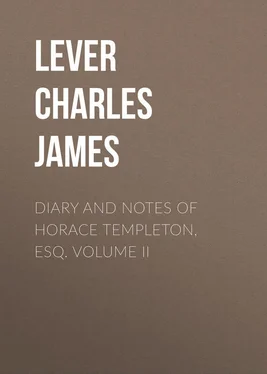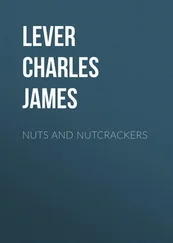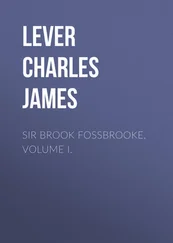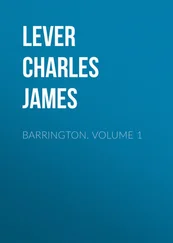Charles Lever - Diary And Notes Of Horace Templeton, Esq. Volume II
Здесь есть возможность читать онлайн «Charles Lever - Diary And Notes Of Horace Templeton, Esq. Volume II» — ознакомительный отрывок электронной книги совершенно бесплатно, а после прочтения отрывка купить полную версию. В некоторых случаях можно слушать аудио, скачать через торрент в формате fb2 и присутствует краткое содержание. Жанр: literature_19, foreign_antique, foreign_prose, на английском языке. Описание произведения, (предисловие) а так же отзывы посетителей доступны на портале библиотеки ЛибКат.
- Название:Diary And Notes Of Horace Templeton, Esq. Volume II
- Автор:
- Жанр:
- Год:неизвестен
- ISBN:нет данных
- Рейтинг книги:5 / 5. Голосов: 1
-
Избранное:Добавить в избранное
- Отзывы:
-
Ваша оценка:
- 100
- 1
- 2
- 3
- 4
- 5
Diary And Notes Of Horace Templeton, Esq. Volume II: краткое содержание, описание и аннотация
Предлагаем к чтению аннотацию, описание, краткое содержание или предисловие (зависит от того, что написал сам автор книги «Diary And Notes Of Horace Templeton, Esq. Volume II»). Если вы не нашли необходимую информацию о книге — напишите в комментариях, мы постараемся отыскать её.
Diary And Notes Of Horace Templeton, Esq. Volume II — читать онлайн ознакомительный отрывок
Ниже представлен текст книги, разбитый по страницам. Система сохранения места последней прочитанной страницы, позволяет с удобством читать онлайн бесплатно книгу «Diary And Notes Of Horace Templeton, Esq. Volume II», без необходимости каждый раз заново искать на чём Вы остановились. Поставьте закладку, и сможете в любой момент перейти на страницу, на которой закончили чтение.
Интервал:
Закладка:
It would scarcely be instructive – not any more than amusing – to recount the painful progress of this long contest – a contest, after all, in which there is nothing new to any reader of history; for when force is on one side and weakness on the other, the result may be deferred but is never doubtful. It is enough that we say, Star made submission. True, it was the submission of coercion – no matter for that, it was submission; for after three weeks of various successes on either side, the creature greeted Fritz one morning as he arose with a feint cry of “Maria, Maria!”
This was enough, more than enough, and Fritzerl could have hugged him to his heart.
His authority recognised, his will acknowledged, he was but too happy to take his rebellious subject into full favour again. Whether Star felt the benefits of his changed conduct so very satisfactory to his comfort, or that he was really disposed to please his master, I cannot say; but, from that hour out, he laboured strenuously to learn his new profession of faith, and screamed “Maria!” from day-dawn to dusk. The two following words were, however, downright puzzles; “Mutter-Gottes” was a combination that no Starling – even a German one, bred up among strong gutturals and flat labials – could master. He worked hard, however, and so did Fritz. If life depended upon it, neither of them could have exerted themselves more zealously; but it was no use. In any other language, perhaps, Star might have been able to invoke the Virgin, but here it was out of the question. The nearest approach the poor fellow could make was something like a cry of “Mörder – Mörder” (Murder – murder); so unfortunate a change that Fritz abandoned the lesson with the best grace he could, betaking himself to the concluding words, which happily presented no such unseemly similitudes.
His success here was such as to obliterate all memory of his former defeat. Starling made the most astonishing progress, and learned the words so perfectly, with such accuracy of enunciation, that to hear him at a little distance any one would say it was some pious Catholic invoking the Virgin with all his might. The “Hülf uns” was not a mere exclamation, but a cry for actual aid, so natural as to be perfectly startling.
So long as the bird’s education was incomplete, Fritzerl carefully screened him from public observation. He had all the susceptibility of a great artist, who would not let his canvass be looked upon before the last finishing touch was laid on the picture. No sooner, however, had full success crowned his teaching, than he proudly displayed him in a new cage made for the occasion at the door of the Bauer’s hut.
It was Sunday, and the villagers were on their way to mass; and what was their astonishment to hear themselves exhorted as they passed by the fervent cry of “Maria, hülf uns! Hülf uns, Maria!” Group after group stood in mute amazement, gazing at the wonderful bird, some blessing themselves with a pious fervour, others disposed to regard the sounds as miraculous, and more than either stood in dumb astonishment at this new specimen of ghostly counsel.
All this while Fritzerl lay hid beneath the window, enjoying his triumph with a heart full almost to bursting. Never did singing-master listen to the syren notes of his pupil, while as the prima donna of a great opera she electrified or entranced a crowded audience, with more enthusiastic rapture than did Fritz at his Starling’s performance. Poor little fellow! it was not merely vanity gratified by public applause – it was a higher feeling was engaged here. A sense of religious exaltation worked within him, that he had laboured in a great cause; a thrill of ecstasy trembled at his heart that another voice than his own was asking aid for him, and incessantly invoking the Virgin’s protection on his own head. Happy had it been for him that no other sentiment had intervened, and that he had not also indulged a vain pride in the accomplishment of his pupil!
It so chanced, that among those who passed the hut and stood to wonder at this astonishing creature, was a tall, ragged-looking, swarthy fellow, whose dress of untanned leather, and cap ornamented with the tail of many a wood squirrel, told that he was an “Engadiner,” one from the same land Fritz came himself. A strange wild land it is! where in dress, language, custom, and mode of life, there is no resemblance to any thing to be seen throughout Europe. A more striking representative of his strange country need not have been wished for. His jacket was hung round with various tufts of plumage and fur for making artificial birds, with whistles and birdcalls to imitate every note that ever thrilled through a leafy grove; his leathern breeches only reached to the knee, which was entirely bare, as well as the leg, to below the calf, where a rude sandal was fastened; his arms, also, copper-coloured as those of an Indian, were quite naked, two leathern bracelets enclosing each wrist, in which some metal hooks were inserted: by these he could hang on the branch of a tree, or the edge of a rock, leafing his hands at liberty. He wore his coal-black hair fer down on his back and shoulders, and his long moustache drooped deep beneath his lank jaw. If there was something wild almost to ferocity in his black and flashing eyes, the mouth, with its white and beautifully regular teeth, had a look of almost womanly delicacy and softness, – a character that was well suited to the musical sounds of his native language ~one not less pleasant to the ear than Italian itself. Such was he who stopped to listen to the bird, and who, stealing round to the end of the hut, lay down beneath some scattered branches of firewood to delight his ear to the uttermost.
It may be doubted whether a connoisseur ever listened to Orisi or Jenny Lind with more heartfelt rapture than did the Engadiner to the Starling; for while the bird, from time to time, would break forth with its newly acquired invocation, the general tenor of its song was a self-taught melody – one of those wild and delicious voluntaries in which conscious power displayed itself; now, astounding the ear by efforts the wildest and most capricious, now subduing the sense by notes plaintive almost to bring tears. In these latter it was that he mingled his cry of “Maria, hülf – hülf – hülf uns, Maria!” – words so touching and so truthful in their accents that at every time the Engadiner beard them he crossed himself twice on the forehead and the breast; which devout exercise, I am constrained to say, had in his case more of habit than true piety, as the sequel proved.
I forget whether it is not Madame de Seuderi has built a little theory upon the supposition that every mind has within it the tendency to yield to some one peculiar temptation. The majority, I fancy, have not limited their weakness to units. Poverty has so many wants to be supplied, wealth so many seductions to offer, that it may be affirmed he is not worse than his fellows whose heart has only one undefended bastion. I am not anxious to claim for my Engadiner any more than ordinary powers of resistance: neither his race nor his country, the habits of his life, nor his principles – if it be permitted to use the word – had taught him such self-control; but, if they had – if they had steeled his nature against every common seduction, they could not have stifled within him the native passion for bird-catching, or, what is very much akin to it, bird-stealing. He would as soon have thought it needful to restrict his lungs in their requisite quantity of atmospheric air, as to curb what he regarded as a mere human instinct. If Engadiners were made for any thing, it was for bird-catching: no one did any thing else, thought, spoke, or dreamt of any thing else, in the Engadine. It was not a pastime, or a caprice; it was not that the one was skilful, or that the other was adroit at it, but the whole population felt that birds were their natural prey, and that the business of their life was comprised in catching, feeding, training, sending, and selling them all over the globe – not only in Europe, but over the vast continent of America. Wherever birds had fanciers, wherever men cared for the tints of plumage or the warbling mellowness of their notes, there an Engadiner was sure to be found. And who has ever studied their nature like one of these mountaineers, who knows all their habits and their tastes, their seasons of migrating and returning, how they build their nests, and all their likings and their antipathies – the causes which influence their selection and abandonment of a peculiar locality, the meaning of their songs – ay, and they are full of meaning – of welcome, of sorrow, of love, and of despair? None like an Engadiner for all this! Few would have the patience, fewer still the requisite gifts of acuteness, with uncommon powers of eye and ear – of eye to discern the tints of plumage among the dark leaves of the pine-forest – of ear to catch and imitate the notes of each tribe, so that birds themselves should answer to the sounds.
Читать дальшеИнтервал:
Закладка:
Похожие книги на «Diary And Notes Of Horace Templeton, Esq. Volume II»
Представляем Вашему вниманию похожие книги на «Diary And Notes Of Horace Templeton, Esq. Volume II» списком для выбора. Мы отобрали схожую по названию и смыслу литературу в надежде предоставить читателям больше вариантов отыскать новые, интересные, ещё непрочитанные произведения.
Обсуждение, отзывы о книге «Diary And Notes Of Horace Templeton, Esq. Volume II» и просто собственные мнения читателей. Оставьте ваши комментарии, напишите, что Вы думаете о произведении, его смысле или главных героях. Укажите что конкретно понравилось, а что нет, и почему Вы так считаете.












